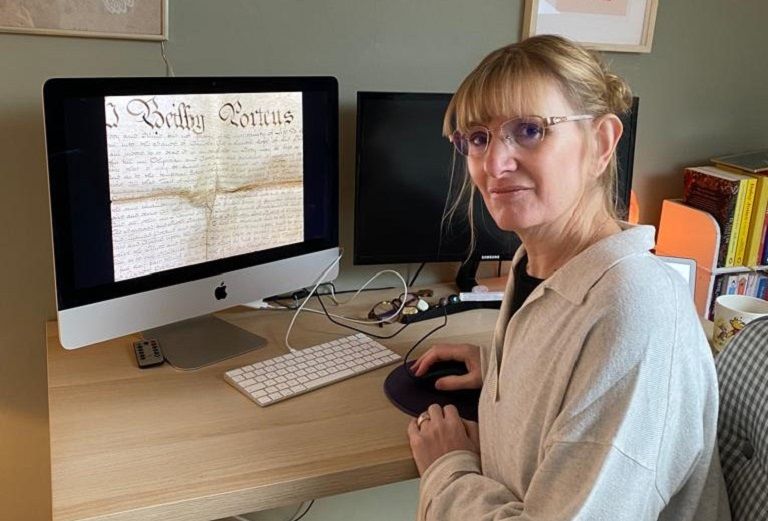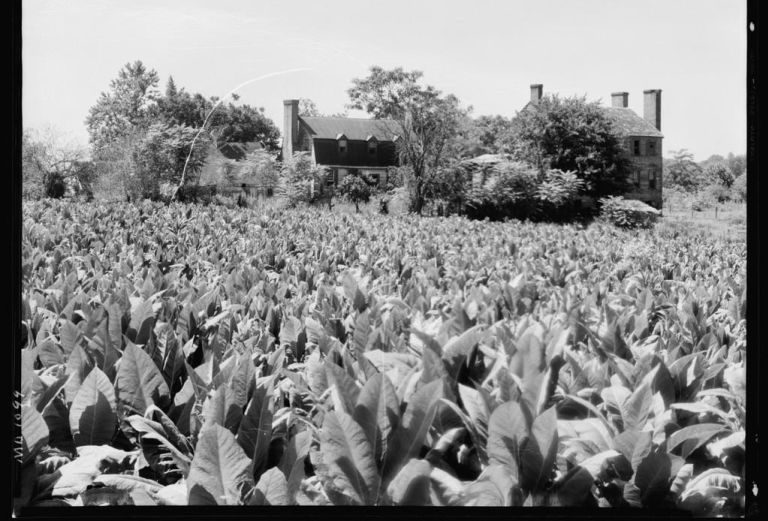
Written by Dr Celia Mill, Archive research project manager.
With a background in libraries, heritage, and medieval research, I first started working with the wonderful Fulham Palace volunteers and other researchers in 2017. We explored and interpreted the history of the Bishops of London for the new museum, opened in 2019.
My PhD explored how Medieval devotional literature and Christian ideas could be interpreted in opposing ways depending on the intended purpose, religious education, and social status of both the writer and reader or listener. I am particularly interested in exploring how ordinary people received and interpreted what they were taught – an aspect which is difficult to grasp as it is not always found in official records.
When I started exploring the involvement of the Bishops of London in colonialism and the transatlantic traffic in enslaved Africans for Fulham Palace Trust I was keen to see what we could find out about those people over whom the Bishops had ecclesiatical jurisdiction, including the enslaved people they sought to convert to Christianity.
We found that historic letters from clergy to the Bishops of London sometimes mentioned freedom fighting and the use of African spiritual practices such as Obeah, singing, and dancing among the enslaved population. These practices were usually described negatively and we worked with PhD placement student Isaac Crichlow to explore the evidence for the use of these practices.
Isaac’s investigation into these acts of resistance demonstrates the cultural and spiritual weight that they had to the enslaved and how some rituals were adapted to new hostile environments. I was particularly interested in the Jonkonnu Christmas festival where enslaved Africans made masks to denote and channel their spiritual deities, such as Rice Bird, a powerful force against witches and Horse Head, who represented the plantation overseer and could be safely mocked. Learn more about Jonkonnu Christmas Festival, part I, part II.
Our research was used in workshops led by Adisa, the artist working with Fulham Palace in 2022 to tell the story of the Bishop of London, colonialism, and transatlantic slavery which will result in an exhibition early in 2023.
I hugely enjoyed attending Adisa’s workshop which explored the power and significance of the Jonkonnu masks through the power of poetry and it was great to see the children perform the wonderfully insightful and imaginative poems they created.
We have also undertaken research on the links with the family of Bishop of London, Beilby Porteus, with slavery. We now know that Bishop Porteus was himself an enslaver, having inherited his father’s plantation in Virginia before selling the estate and sharing the proceeds with his siblings. We also know the names of two of the people enslaved by Porteus’ father and grandfather: Cumbo and Peter. From the few details given in the wills we know that they worked in the house rather than on the plantation, that Cumbo was a woman and that Beilby’s father describes Peter as ‘old’. Beilby also inherited another plantation from another brother in Maryland towards the end of his life.
I go into greater detail here (and in a blog post to come later to come), but there is still more to find out about how Porteus and earlier Bishops impacted other people through their family associations and religious authority. I am therefore delighted that Fulham Palace Trust has collaborated with the University of Kent to offer a fully funded PhD position from October next year. The project is entitled ‘The Church and the Plantations: An Examination of the Bishops of London and their Workforces in the Tobacco Colonies, c.1680-1800’.

The idea is that the project will address historical linkages between the Bishop of London and colonialism, especially among plantation estates, enslaved people, and other victims of exploited labour in Virginia and Maryland c.1680- 1800. Its aim is to outline connections that arose as the Church of England developed its colonial profile and to identify specific people and estates. It is currently being advertised here with a closing date of 12 noon on Friday 27th January 2023.
Fulham Palace will also continue carrying out research into the impact of the Bishops of London on colonialism and the traffic in enslaved Africans and to work with a wide range of researchers and community groups to help us ask questions and interpret the answers. I have learned so much and am looking forward to seeing what else we can discover!
Celia and her team are working hard to prepare Fulham Palace’s upcoming exhibit ‘The Bishop of London, colonialism and transatlantic slavery’ for installation early 2023.